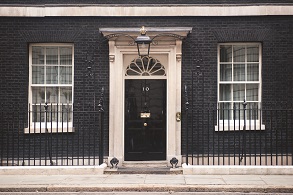Comment / Real choices
By the time you read this, the election will nearly be upon us. It’s such an unusual period to be living in. Brexit is supposed to be the all-encompassing issue, but for those of us working in the caring services (and many others), health and social care is as important if not more so.
Understanding the funding pledges from the different parties is not straightforward given the different ways they use to describe their offers. Respected thinktank the Nuffield Trust, based on a number of assumptions, says the additional spending promises amount to, by 2022/23: £8bn (Conservatives); £12bn (Labour); and £9bn (Liberal Democrats).
It adds that the three main parties’ proposals for health would all see NHS spending fall as a proportion of gross domestic product.

This falling proportion – even with the proposed investment plans – perhaps highlights why the HFMA and others have been calling for health spending to command a set percentage of GDP to provide some protection against rising demand and activity.
Healthcare funding is such an important issue. Getting the balance right between proper funding and realistic productivity improvements is difficult and election campaigns have a tendency to encourage simple slogans and overblown claims rather than evidence-based arguments. It is not all about funding. But getting the right financial framework in place will provide the right context for the other essential changes in clinical and support service pathways.
We have been spared the often overt NHS manager bashing seen in previous campaigns. But, depending on who you believe and what you read this time, different party proposals would contribute to either bankrupting the country or be a forerunner to open privatisation of the NHS. The reality is always more nuanced.
Of course there are opportunities to improve outcomes and productivity in the NHS. But we should rightly be proud of a service where ability to pay is simply not an issue. I have recently returned from the US and, while there are aspects of their system that are laudable, their insurance-based funding approach leads to some inequitable situations that I’d suggest are incompatible with ‘British values’..
HFMA members will have their own views on who to vote for, influenced to differing extents by the parties’ proposals for health and social care. It may not be the wide-ranging, detailed debate that the HFMA and others have been calling for. But there do appear to be some very different proposals on which to base our decision.
Working in the service means we can sense-check the claims of the parties and how they will affect services. We are best placed to understand whether health and social care proposals are realistic and practical or just populist hot air.
All I can say is … please do vote. There has been some suggestion that the country has election fatigue – with Brenda from Bristol becoming the spokeswoman for many when she declared: ‘Not another one’.
The reality is that there are major issues at stake on 8 June and the right to vote is a privilege our ancestors have fought hard for – universal suffrage sadly still remains only an ambition in some parts of the world.
See you in the polling booth.
Related content
This event is for those that will benefit from an overview of costing in the NHS or those new to costing and will cover why we cost and the processes.
Mindset and the neuroscience of leadership - Lunch and Learn